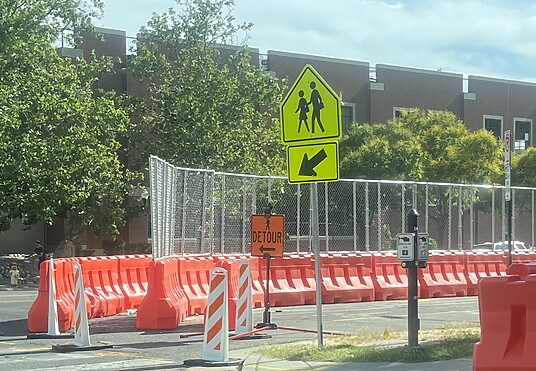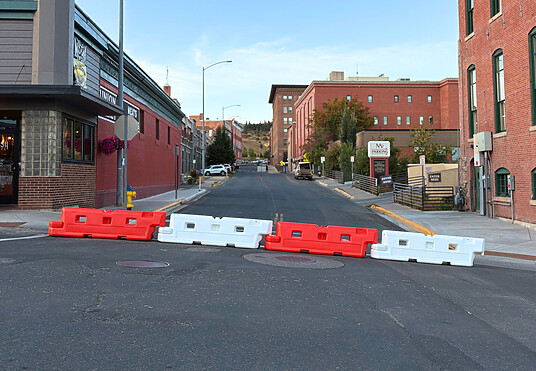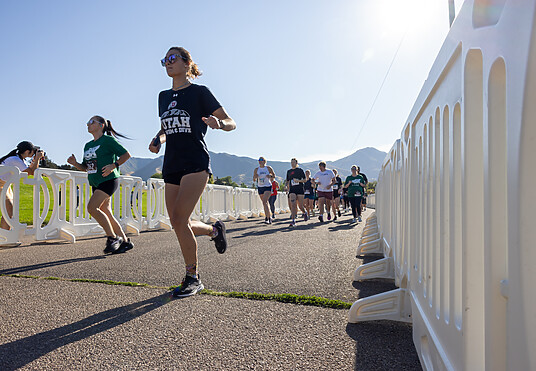Let’s Talk Event Safety: FestForums 2024
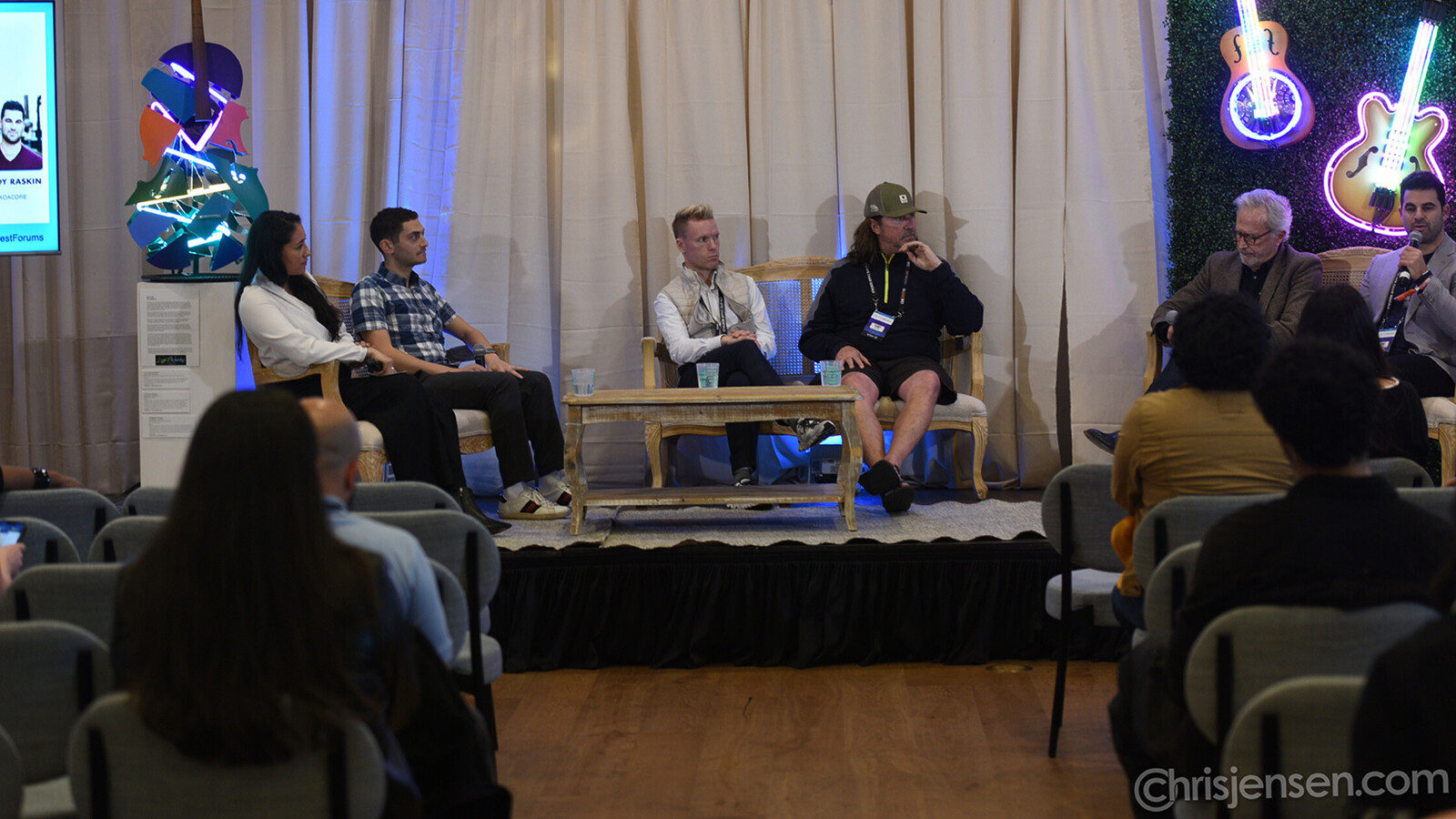
ANOTHER MEMORABLE FESTFORUMS!
We sponsored the conference for the second consecutive year and provided a full pallet of royal blue crowd control barricades to match their newly redesigned logo.
This conference covers all things festivals: event planning, event production, event management, event safety, and more. This year, we had the privilege of attending as sponsor, panelist, moderator, and attendee. Here are some of our key takeaways from FestForums 2024.
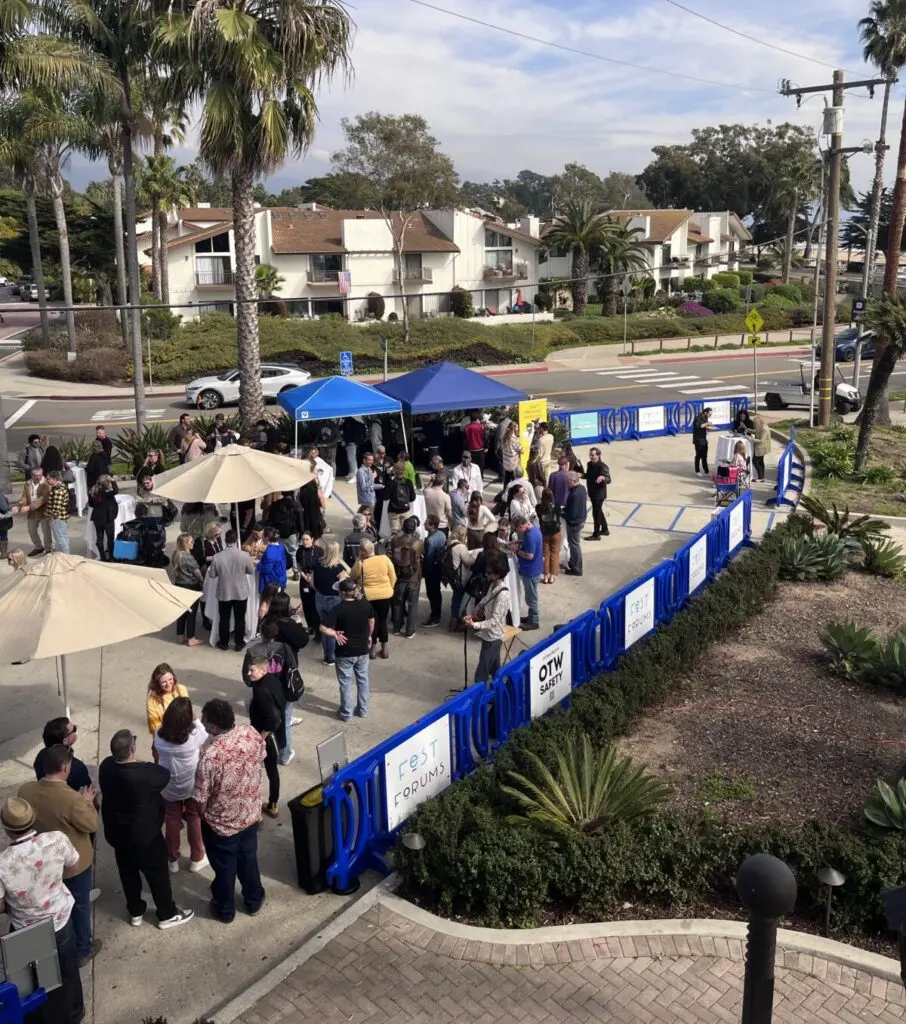
Above all, safety.
Our own Marina Pastrana Ríos moderated the safety panel this year, and, there, one type of question in particular stood out: whether safety should be the end-all at an event. Our conclusion? Yes!
While some artists and event planners might want to keep the mindset of “what happens at the concert stays at the concert” and be able to prevent people from sharing content online (or even help attendees to be more present), this is likely to be more dangerous than not. Panelists stressed the importance of being able to reach help in a crisis or receive push notifications from the venue in case of emergency. If phones have been taken at the door, this disconnects the attendee not only from their social media but from help as well. Whether someone gets lost, is dehydrated, becomes overwhelmed, or something else, individuals should be able to call or message for help in any circumstance at any time.
Event safety education is a must.
While event planning involves setting up safety measures for guests, even the most detailed of plans can go awry if attendees aren’t as committed to their safety as the organizers. The hope is that mandated safety standards will one day be in place for festivals and concerts, but any sort of standards would likely be a long time coming.
In the meantime, the consensus was that prevention and safety education is a must. For those who care about safety as a primary obligation, for both guests and staff, a better job must be done of educating event participants. More informed guests mean better decision-making… hopefully! When an attendee is informed of safety risks and the things they need to do at festivals or concerts to stay safe (or what to do in an emergency), the likelihood that they take safety seriously is higher. Education and precise information can also help the guest make informed decisions about what events they will and will not attend for their own safety.
- “It’s all about health and safety: we innovated technologies to ensure these things – you have a responsibility to the customer, and, at the end of the day, health and safety is paramount” – John Boyle
In the case of prevention, it’s up to organizers to be prepared in the case that something happens at their event. Teddy Raskin, a panelist and CEO of KOA-LIVE, noted that he has worked with customers to show them the true cost and risk of failure to invest in [additional] safety protocols or preventative technology. As of now, being prepared and reducing the insurance cost for events (by having better protocols and tech) is likely to create bigger change than waiting for politicians to get involved.
Effective crisis management is good event management.
One of the highlights of FestForums 2024 (for us!) was the Reality Check on Crisis Responses Round Table led by Gareth Gallager. We take safety seriously, and we know that emergency plans are one of the most important aspects of event planning. We’re so invested, that we offer it as part of our Event Production Services! With that in mind, it’s easy to see why the round table piqued our interest and gave us a lot to think about.
A round table is just that: a collaborative conversation between peers, colleagues, and associates where every voice can be heard. This one, in particular, gave us insight into the different types of festivals and how event management can handle the practical aspects of when the unthinkable happens. Gareth led the panel through the actual reality of when a crisis happens and what needs to take place during and after such events.
Here are some of the things touched on:
- Clear communication plans and evacuation plans are critical for any event, regardless of size.
- Non-profit events are run by volunteers and have a more difficult time with training and ensuring all volunteers understand procedures for emergencies.
- Boards often want to focus on the creative and more fun aspects of events but do not set aside appropriate time and energy to plan for emergencies. This can be concerning when a venue or city has yet to deal with a crisis.
- Smaller cities have less developed procedures and may require the event in question to help them develop better safety planning.
- Creating a matrix of safety crisis solutions is critical. It was noted that there is a very clear difference between European and UK standard requirements vs those in the US.
- The importance of role-playing and stress testing on employees and volunteers. At the very least, a set minimum number of staff should have ALICE (Active shooter training) training.
All these, and more, were discussed in an effort to understand what it takes to create effective crisis and event management and handle crises in the moment at festivals big, small, and every size in between.
We’re better together.
This takeaway hits in a couple of different ways.
For one aspect of “better together”, we were able to be part of a discussion about intentionally partnering with vendors and how that can help with budget. Many event budgets are small or simply not large enough to cover every need. Good event planning, then, might fulfill that need by partnering or asking for sponsorship with someone who specializes in the area of need, thus minimizing the budget burden. In addition, thrifty event management might look like seeking state, local, or municipal funding for safety measures.
Lastly, we saw once again just how important inclusivity and diversity are in the event space. People from all walks of life attend events. What’s important is ensuring that people are given equitable opportunity and accessibility to experience said events safely. In the Addressing Diversity and Inclusion panel, CJ Milan said, “At the end of the day, you’ve got to serve people. I’m learning my community. Everybody’s welcome”. One of our values is that OTW is a people-first company: we understand that mutual respect is crucial and that every perspective is unique and valuable. This outlook extends to anyone and everyone, whether in work, fun, or just life in general, so we strive to continually learn more about the needs of different communities that are underrepresented in the industry. We fully believe that everyone deserves to enjoy life and that everyone deserves to be safe while doing so. OTW works hard to support inclusivity and diversity and make safety accessible at concerts, events, festivals, and more… for all!
OTW is committed to keeping the conversation open.
While FestForums happens once a year, event safety is a year-round commitment. At OTW, we look forward to continuing to be a part of the conversation (and part of the solution!) for the event and safety space. We’re taking these “takeaways” with us into 2024 and beyond!
Have questions about your own event safety planning? Our experts are waiting to hear from you! Click here to request a consultation.
